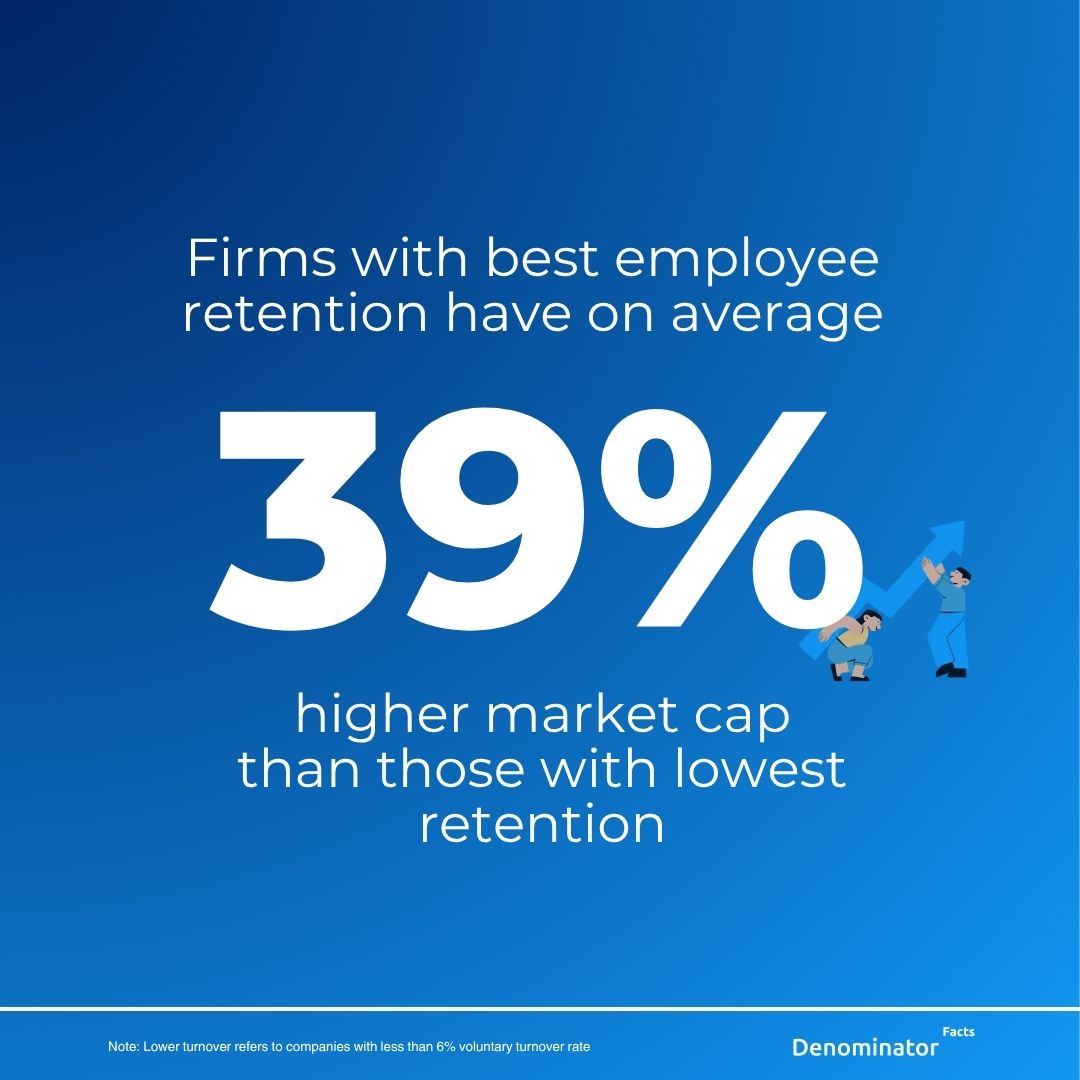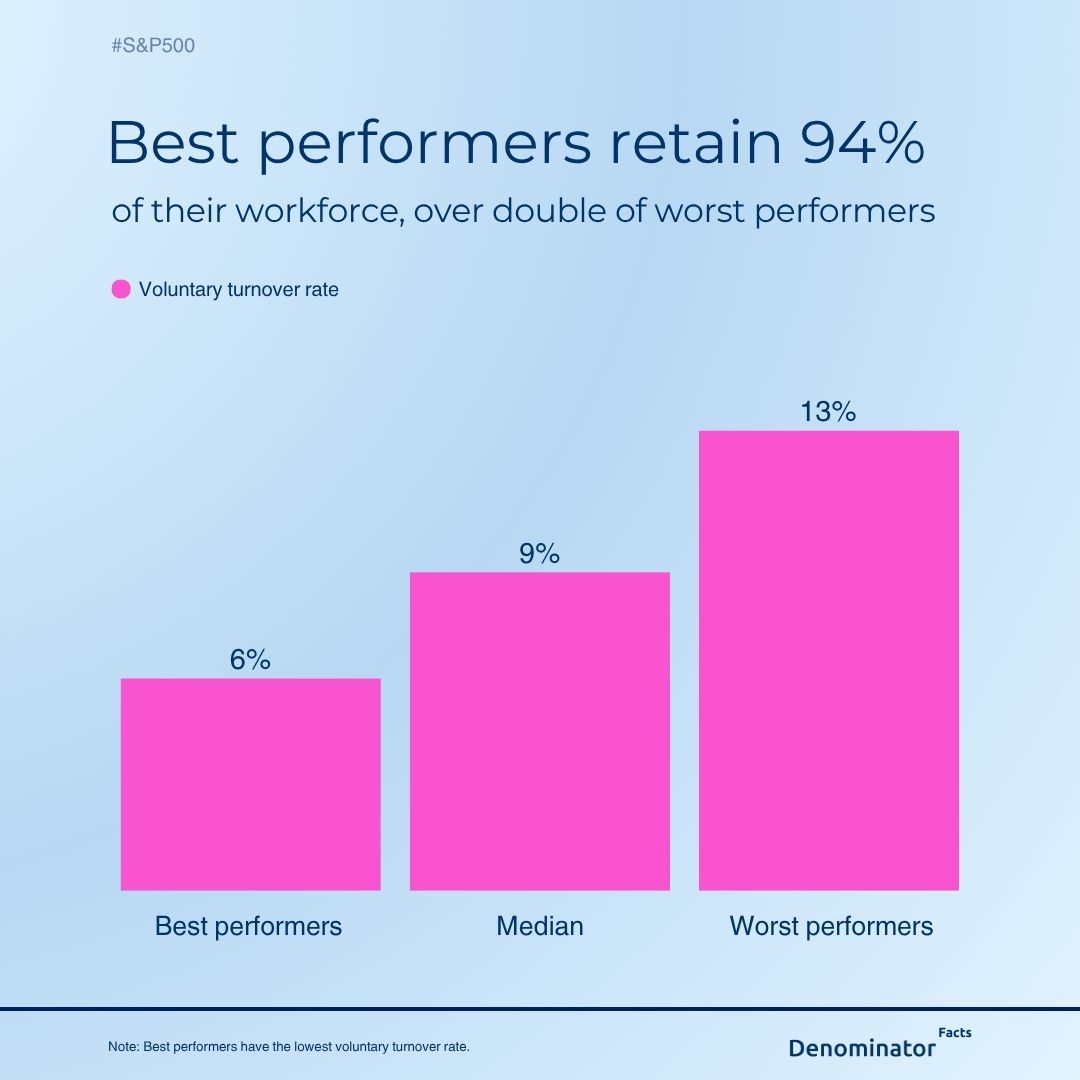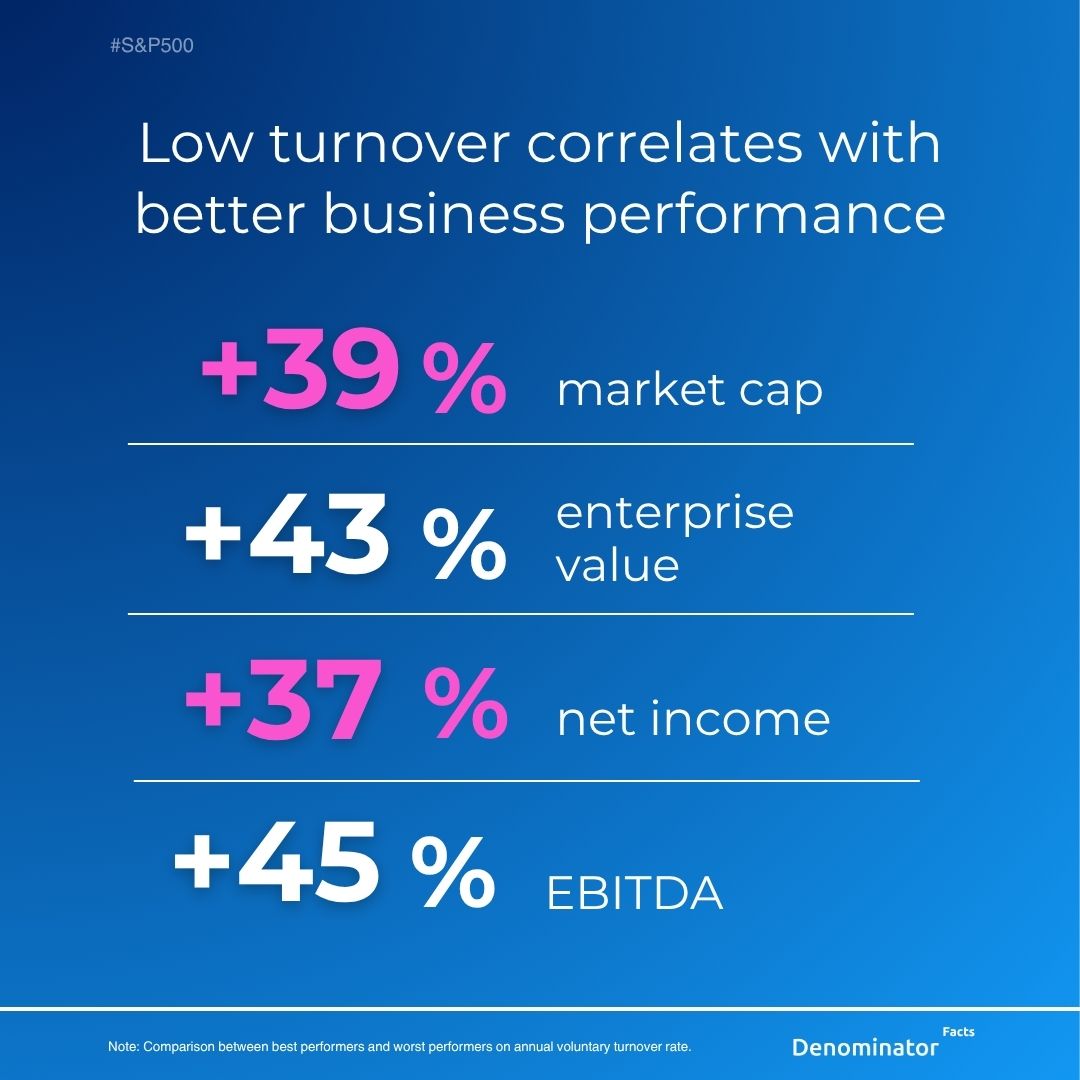Employee retention is an important factor influencing both workforce stability and business performance. In the S&P 500, companies with the lowest voluntary turnover rates tend to show stronger results across a range of financial metrics and market indicators.
Reducing turnover doesn’t just protect talent, it can boosts enterprise value, profitability, and market confidence.
Low turnover, high returns
Data from Denominator reveals that companies in the S&P 500 with voluntary turnover rates below 6% per year (classified as best performers) experience better financial and market performance. Compared to companies with the highest turnover (worst performers), their average market capitalization is 39% higher.
Stronger enterprise value and net income
Beyond market cap, low-turnover companies also report 43% higher enterprise value. This may be associated with investor expectations regarding the firm’s future cash flows and operational performance.
They also achieve 37% more net income, highlighting the direct impact of retention on bottom-line performance.
Sustainable growth in net sales
While the growth in net sales is more modest, 4% on average, it still reinforces the consistency seen across multiple indicators. Keeping experienced talent may help maintain stronger client relationships, operational continuity, and better product execution.
From HR topic to business strategy
These findings make it clear: turnover is no longer a solely HR metric. It’s a material factor for business strategy, financial forecasting, and investor engagement. Companies aiming for long-term value might consider retention not just as a cultural goal, but as a financial level.
Which industries retain talent better?
Retention patterns vary widely across sectors. In a related analysis, we explored which industries have the highest and lowest voluntary turnover rates.
Explore the industry-level turnover breakdown
Learn more about the relationship between human capital metrics and business performance at our Knowledge Hub.
Disclaimer: This content is for marketing and informational purposes only and does not constitute financial advice. Please consult professional advisors before making decisions.











